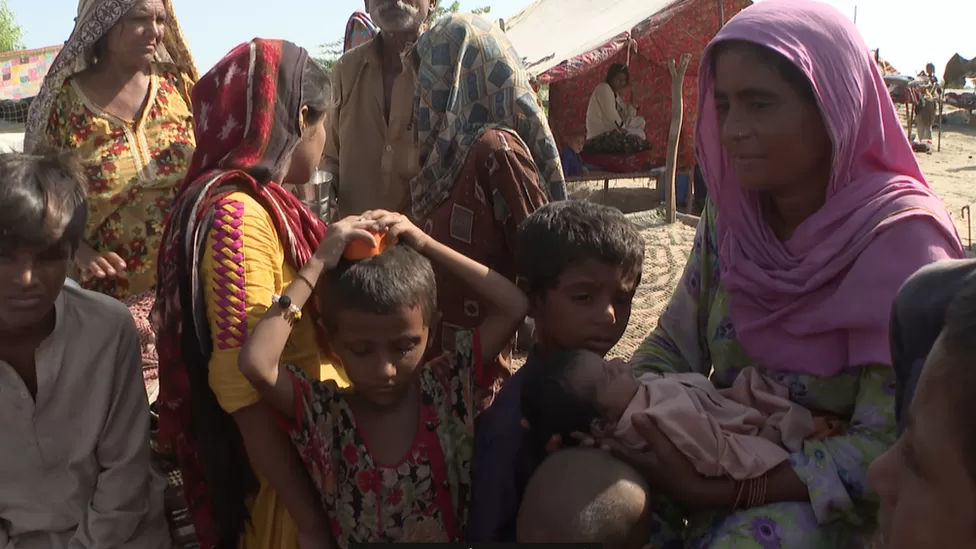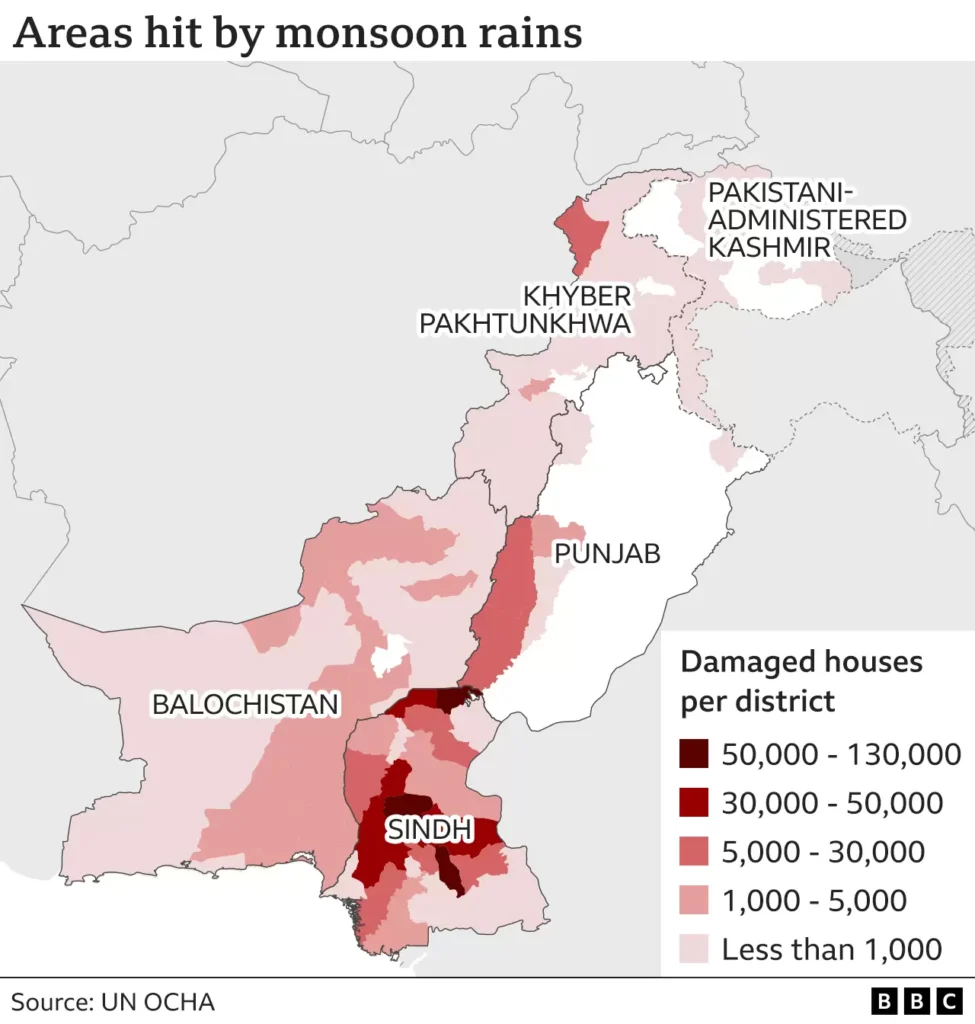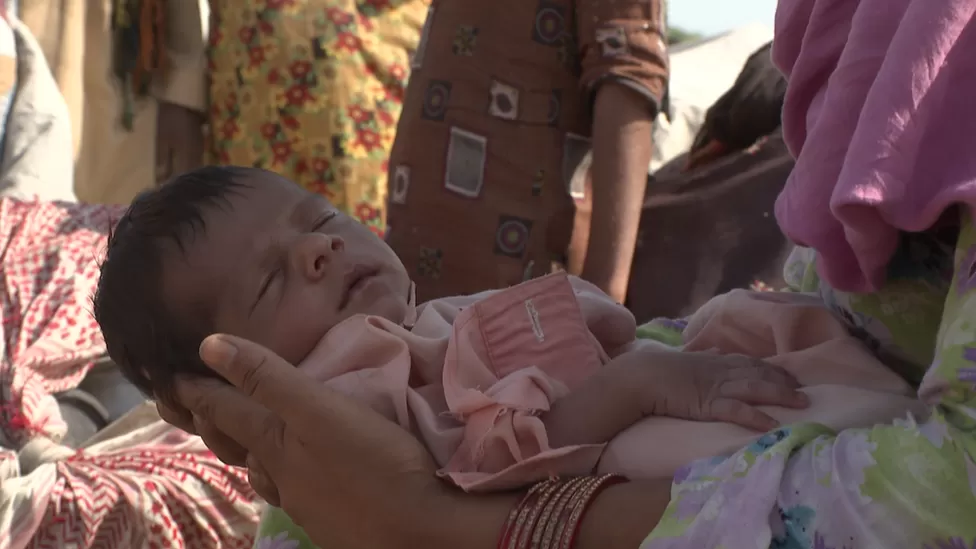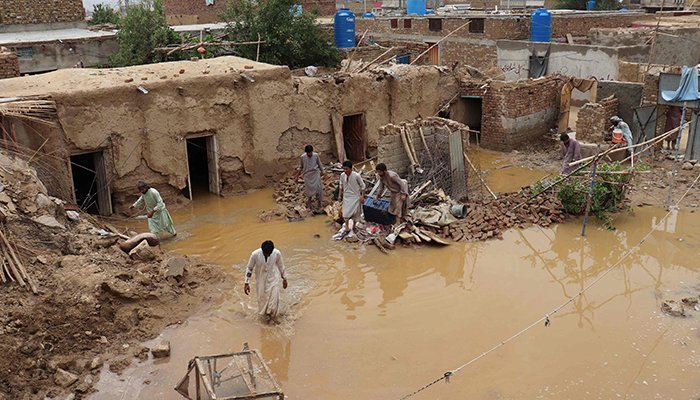Record floods in southern Pakistan, attributed to climate change, have inundated a third of the country and killed over 1,100 people, leaving the region even more vulnerable to future disasters. People living in the southern part of Sindh province are in danger as a result of the Indus River’s recent flood.

Local authorities in Sindh’s Dadu district estimate that 1.2 million people have been forced to evacuate their homes due to rising floodwaters. From the mountains, mudslides and flood waters are making their way toward the villages in this area.
The military is rescuing those who are stuck in both air and sea. There is still an urgent need to relocate thousands of people who are in danger of being swept away by the floodwaters.
I was told by a local official that they’ve been conducting operations in the area for the better part of a month.
“The onset of more water is becoming apparent. There is a great deal of need but not nearly enough of us to meet it “He tells me this just before boarding a ship. The towns are spread out, thus traveling between them may take several hours on the water.
When we arrive in Khairpur Nathanshah, the military, humanitarian workers, and locals are all working together to transport people to safety on dry land as quickly as can.
We float for a while and eventually arrive at a settlement, where dozens of residents are milling about in front of their flooded homes. Many people get on, but the boats can’t save them all right now. The wait for one man is torturous because he doesn’t know when aid will come back.

“The need to get food has forced me to abandon my loved ones in the community. However, I have no idea when the next boat will arrive or when I will be able to get back to them “says Perviz Ali, his voice shaking as he prepares to burst into tears.
Roadside families in another area of Dadu lack even tents and other forms of protection from the elements. Living in the open with nothing has been going on for weeks for many people.
“We have no way to feed our kids and no one seems to care. How come no one is taking action? Why is no one coming to our aid now that we’ve lost everything?” mother-of-three Rafiq, whose kids are all less than six, says.
These families have told that they are devastated by what has happened to them, but that their grief is giving way to fury because nothing seems to be done to improve their condition. They see the police every day and it makes them feel powerless and angry.
Shabana, who lives in the village beside Rafiq, is holding a baby girl who was born a month ago, right before the floods hit. Little Rizaaq is hungry, but unfortunately for her, so is her mother, and she is unable to breastfeed her.

“I am currently unable to provide breast milk. I’ve been here for two weeks, and not a single person has offered any assistance. Food is always a constant source of stress for us. The milk for the infants has not even been brought. His future worries me “, the woman explains.
The floods have destroyed the roadways on either side of this neighborhood, resulting in hours of backed-up traffic. It will be an enormous challenge to get aid here.
Mahnur is MS(development Studies)Student at NUST University, completed BS Hons in Eng Literature. Content Writer, Policy analyst, Climate Change specialist, Teacher, HR Recruiter.










